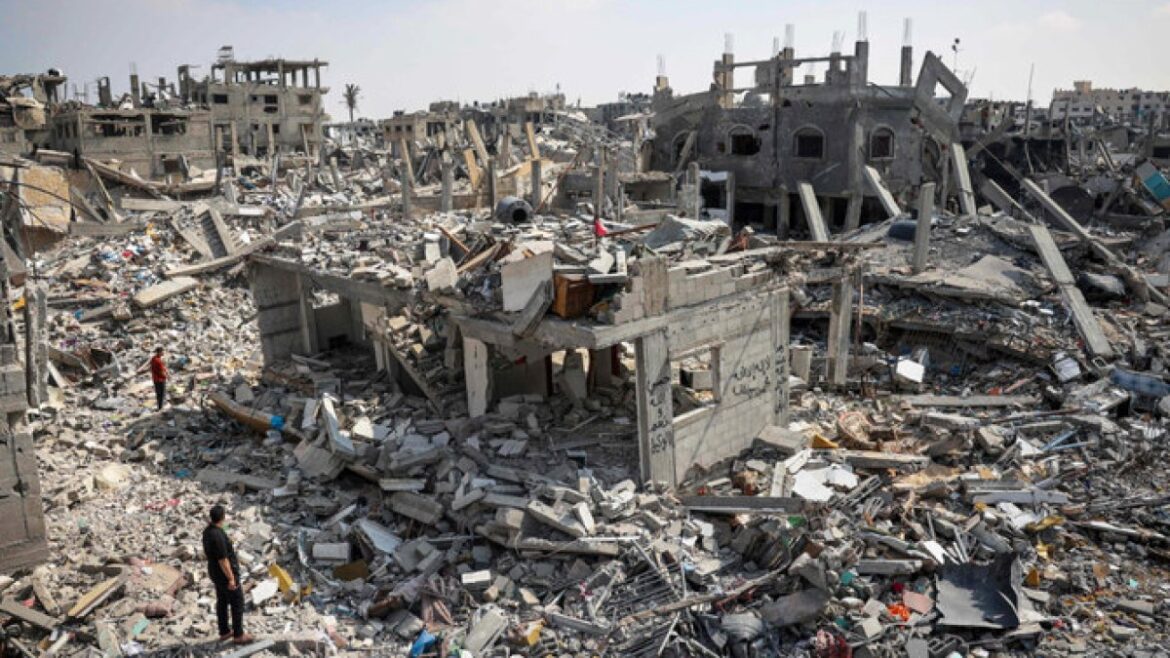The United Nations Environment Program (UNEP) said that the Israeli attacks on residential areas in the Gaza Strip since October 7 have left 39 million tons of rubble.
The program noted – in a report published today, Tuesday, regarding the environmental impact of the Israeli attacks on Gaza – that it prepared the report remotely through information it obtained from United Nations activities on the ground, due to the security situation and obstacles to accessing the area.
He stressed that the environmental effects of the war on the Gaza Strip have reached unprecedented levels, noting that the people of the Strip face the dangers of soil, water and air pollution.
The report called for an immediate ceasefire in order to protect lives and reduce the impact on the environment.
He stated that the Israeli attacks in the Strip since last October 7 left 39 million tons of rubble, equivalent to 107 kilograms of rubble per square meter in Gaza.
He explained that almost all water, sanitation and hygiene systems have collapsed in Gaza, warning that sewage has begun to mix with seas, soil, drinking water and even food.
He said that ammunition and explosive chemicals in densely populated areas in the Gaza Strip led to pollution of soil and water resources, and that the risk of heavy metal leakage as a result of damage to solar panels is great.
Since October 7, 2023, Israel has been waging a devastating war on the Gaza Strip with absolute American support, leaving more than 122,000 Palestinians dead or wounded, which has placed Tel Aviv in international isolation and caused it to be prosecuted before the International Court of Justice.
Israel continues its war despite two UN Security Council resolutions to stop it immediately, and orders from the International Court of Justice to end the invasion of Rafah and take measures to prevent acts of “genocide” and improve the miserable humanitarian situation in the Gaza Strip.



